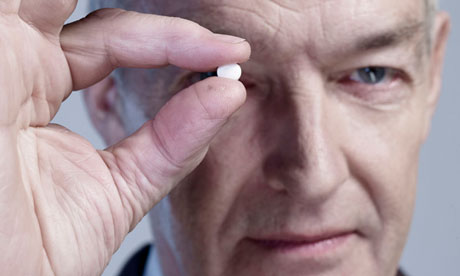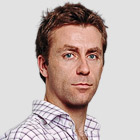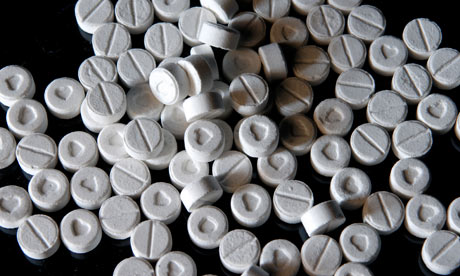Half a million people take ecstasy every week in Britain and Channel 4 provided an opportunity on Wednesday to see some of them in Drugs Live: The Ecstasy Trial.
First things first: nobody took drugs live on Drugs Live. Rather, presenter Jon Snow and TV doctor Christian Jessen presided over an hour-long studio debate, enlivened with explanations around a giant flashing brain and footage including Shabs, a 38-year-old raver, waving his arms around on a dancefloor until 5am and three students babbling on a bed while wearing a variety of hats.
The centrepiece for Drugs Live, which Snow declared one of Channel 4's "boldest projects ever", was a medical study into the effects that clinical grade MDMA (ecstasy) has on the healthy brain.
"Incredibly, no one knows how it works in the brain, nor how harmful it is," said Snow. There are hopes the drug's euphoric effects might help to relieve depression and post-traumatic stress disorder, for example in soldiers returning from war.
The trial was funded by Channel 4 after the Medical Research Council declined. Leading the scientists at Hammersmith Hospital in west London were psychopharmacologists David Nutt from Imperial College and Val Curran from UCL, who held the drug under a Home Office licence and gained ethical approval to go ahead with the study.
Memorably, Nutt was sacked from his position as chair of the Advisory Council on the Misuse of Drugs in 2009 after commenting that ecstasy was no more risky than horse riding and that cannabis was less harmful than alcohol or nicotine.
Five of the 25 people who volunteered for the trial appeared in the studio. Each had spent two sessions at the hospital, where they had taken 83mg of MDMA or a sugar pill, before lying in a functional magnetic resonance imaging brain scanner. As scientists monitored activity in their brains, they answered questions about their mood and memory.
Immediately afterwards, they sat at a computer and rated strangers' faces by how trustworthy they seemed.
Some scientists may have raised an eyebrow at the study. These 25 people were not chosen at random. There was Hayley, the ordained priest, who felt euphoric after the drug, but disconnected from God. Lionel Shriver, the novelist, remained articulate but was disappointed at not getting more. Phil, who was in the SAS and now works "the private military circuit" was the only one, it seemed, to have a bad time. He talked of fighting the drug, became paranoid and felt so bad the next day, he spent the afternoon in bed.
And was it mere luck that the last patient on the trial, who was discharged from hospital during the programme, and came into the studio, seemed to get the drug rather than placebo?
What science came from the study was tentative, but perhaps that reflects how little is known about these drugs. Stood around the giant model of the brain, Nutt spoke of two regions that seemed to operate in unison. When people are stressed or depressed, those regions can become overactive. Unlike alcohol, which dampens down activity across the brain, ecstasy seemed to act particularly on this region, suggesting it might help in depression or PTSD.
This highlighted the problem: the scientists gave the impression that clinical MDMA, not the street drug, might help PTSD, but there it is too early to say.
The one participant on the study who had a bad time was the one person with experience of war. What does that tell us? Nothing, except that an awful lot more work is needed.
Another result from the brain scans revealed that vivid memories of happy times was associated with more activity in the visual areas of the brain, even when the volunteers were laid with their eyes closed in the scanner.
But what of the risks? Andy Parrott, a scientist from Swansea University, rolled out a long list of acute effects of the drug, from a rush of the stress hormone, cortisol, to varied levels of the brain chemical serotonin, poor appetite and sleep.
That will have left some viewers confused, but it is hard to blame the scientists. They are right that far too little is known about the drug.










